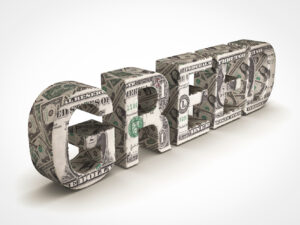VW ‘Dieselgate’ Fueled by Poor Corporate Culture…
…Influenced by poor government regulation.
“For a lesson in what not to do in the way of corporate compliance, look at Volkswagen.”
So wrote Erika Kelton, a whistleblower attorney and contributor to Forbes.
The German automaker went from hip to hated when nearly 500,000 consumers learned they had been deceived. Employees working in what insiders described as a fear-based culture gamed the system by rolling vehicles off the production line that passed U.S. emissions tests but actually polluted the environment. Why? Because factory workers were afraid to admit they were unable to reach the company’s goal of fine-tuning its diesel engines so they not only met the standards of the Clean Air Act but also exceeded them.
The fallout has led to one of the largest automobile-manufacturing scandals in history and one of the most expensive. The government is holding Volkswagen to a $14.7 billion settlement agreement reached nine months after “Dieselgate” emerged.
In September of 2015, when the Environmental Protection Agency revealed to the world Volkswagen’s “defeat devices,” which were aimed at illegitimately hiding the smog its cars were releasing into the air, CEO Martin Winterkorn resigned.
“Once exposed, Volkswagen launched an internal investigation into the fraud,” stated Kelton in an article titled “4.7 Billion Reasons Why Volkswagen Should Have Welcomed Whistleblowers.” “But employees’ fear of retaliation was so strong that the investigators were unable for two months to get employees to reveal how the fraud happened or identify those responsible for orchestrating it.”
Not only did employees fear the company, the company feared employees and failed to cooperate with them for doing the right thing – telling the truth. According to Kelton, “Volkswagen extended job protection only to internal whistleblowers who were covered by collective bargaining pacts and said the offer was good only for a very limited time.”
Now, the maker of the iconic Beetle and other popular brands such as the Golf, Jetta and Passat has been publically humiliated and officially shamed for violating a law put in place to protect the public and the environment. And the problem is far from over. The settlement agreement reached in June of 2016 involves 2.0-liter TDI engines. There is a pending settlement agreement involving the larger 3.0-liter TDI engines.
“Volkswagen acknowledges it also rigged that bigger engine, but a settlement for that issue is still in the works and isn’t expected to be completed for several more months,” NBC News reported in an article titled “Volkswagen Emissions Settlement: So When Can I Get My Money?” “Terms of the agreement may be similar to those announced this week for the smaller diesel engine.”
The terms include cash-compensation, buy-back and fix-and-repair programs totaling $10 billion and $4.7 billion for developing projects that will offset the pollution Volkswagen’s vehicles caused and conducting research into new technology for curbing carbons.
Bloomberg’s editorial board called the settlement agreement hardly a victory for clean air and blamed the matter on inept government regulation.
“Two big lessons of dieselgate are that the car companies will do anything they can to beat tests, and that lax rules play into their hands,” stated an opinion piece titled “Volkswagen’s Checks Aren’t the End of Dieselgate.” “Regulators need to clamp down or risk losing major battles against air pollution and global warming.”
Share This



